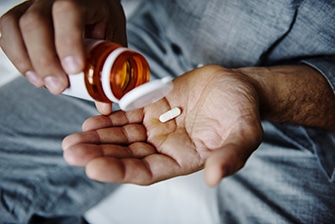The Road is Long: Three Ways Officials are Fighting the Opioid Epidemic
Elected officials are no longer ignoring the growing opioid abuse epidemic in our country, finally introducing and reviewing legislation in the House and Senate meant to address the immediate needs of those currently addicted to opioids, as well as to prevent future abuse. We’ve made a list of the three biggest ways our representatives are trying to fight this national health crisis and halt the staggering body count attributable to opioid abuse.
-
Changing prescription rules.
The simplest way to prevent opioid abuse, some officials say, is by limiting access to opioids in the first place. The director of drug control policy for the White House, Michael Botticellli, has pushed for more thorough training of physicians to be able to recognize and effectively manage drug-seeking behaviors. Other representatives are trying to ensure greater access by the general public to life-saving anti-overdose medications like naloxone in an effort to curb overdose related deaths. Still others have successfully advocated for legal notice to be provided with all opioid prescriptions warning potential users of the increased risk for addiction and abuse. Although in some instances a “black box” has been added to opioid prescriptions warning of the dangers of mixing opioids and benzodiazepines, legislation mandating physician training or compulsory access to an anti-overdose medication has yet to be passed.
-
Cracking down on drug trafficking.
For some elected officials, the true cause of the opioid epidemic is not a systemic failure of physicians and pharmaceutical companies to protect patients, but the result of a lax war on drugs. As attitudes surrounding recreational marijuana use have shifted from disapproval to ambivalence, Representative John Mica from Florida has cited this growing acceptance of previously illegal drug use as a sign of greater tolerance throughout the country for substance abuse. Only by cracking down on the availability of foreign imports of drugs, especially heroin, does Rep. Mica believe headway can be made in the United States’ fight against opioid abuse. Officials pushing for harsher drug laws and enforcement believe that increased normalization of marijuana use even among high school students has a contributed to the increase and arguably the normalization of prescription opioid abuse. While this point of view may be popular among conservatives, harsher drug penalties and a “war on drugs” has not changed the face of addiction in positive ways. Rather, efforts like those made in Portugal, to get addicts help, have made the most community impact.
-
Focusing on the individual.
Finally, a third major group among those fighting to change the tide in the national opioid epidemic are the addiction treatment service providers themselves. While officials disconnected from the population actually using opioids are often all too ready to cite the need for “personal responsibility” in overcoming addiction, treatment providers see a different reality: the need for more resources. Where is the room for personal accountability when an individual who knows they have a problem actively works to overcome their addiction by seeking professional help, only to be turned away due to lack of available treatment resources?
Addiction as a health issue has often been laid at the feet of the addict as a moral failing. But science has shown us that addiction is actually a brain disorder that can affect anyone, from a housewife to a decorated veteran. It may feel empowering to further punish those addicted to opioids with harsher possession laws, but in order to truly impact the scope of this national health crisis, we must never forget that we are treating human beings who thrive with increased self-determination, social connections and holistic treatment.
The Best Call You Will Ever Make
Call Now to Speak Confidentially with an admission counselor.
